Time is a precious commodity, and many people wonder how much they need to properly care for a pet.
While cats often seem less demanding than dogs—they don't require walks, for example—are they truly low-maintenance? The answer is more nuanced than you might think.
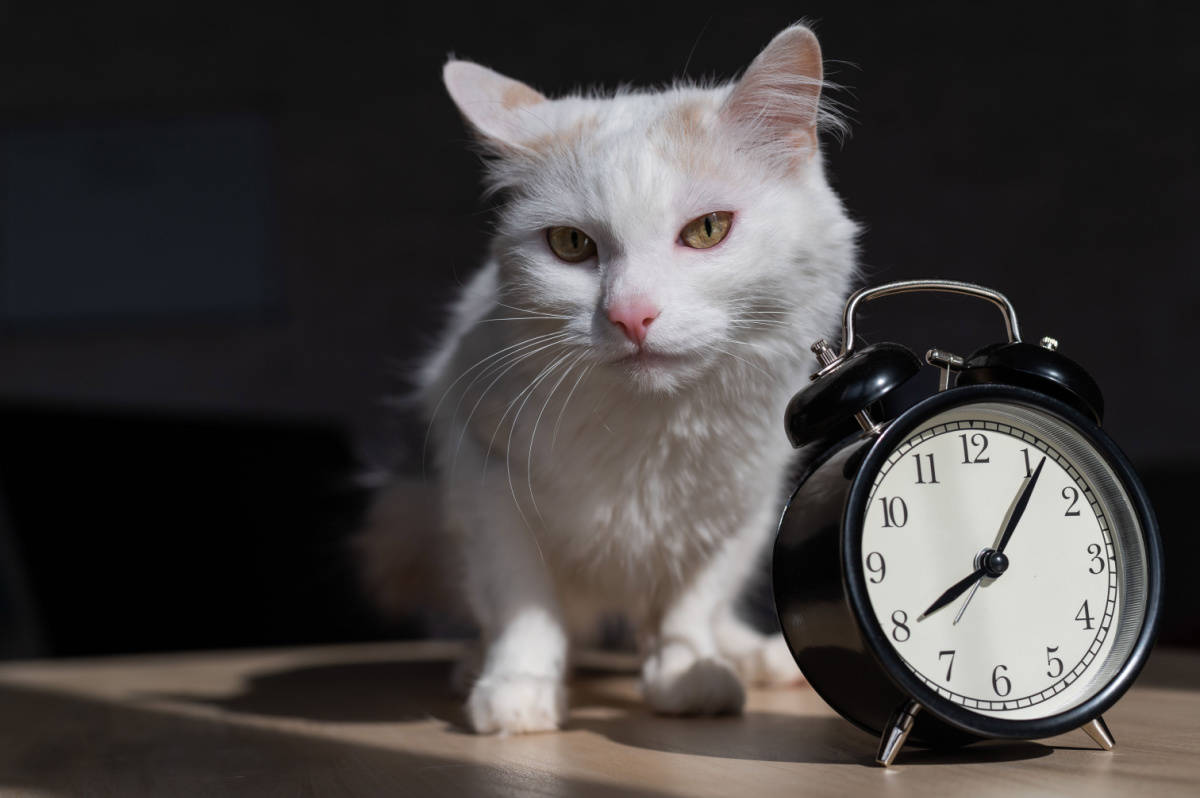
In this article, we'll explore the different aspects of cat care, from feeding and cleaning the litterbox to playtime and grooming.
We'll help you understand how much time you need to keep your feline friend healthy and happy.
Whether you're a busy professional thinking about adopting a cat or an experienced cat owner looking to optimize your routine, this article will give you valuable insights into the time commitment that cat ownership requires.
How Much Time Does It Take To Deal With The Litterbox?
Setting up a litterbox is one of the first tasks for a new cat owner, but it can be tricky as both cats and owners have different preferences.
Choosing the right litter might require some experimentation. Once set up, litterbox maintenance is essential.
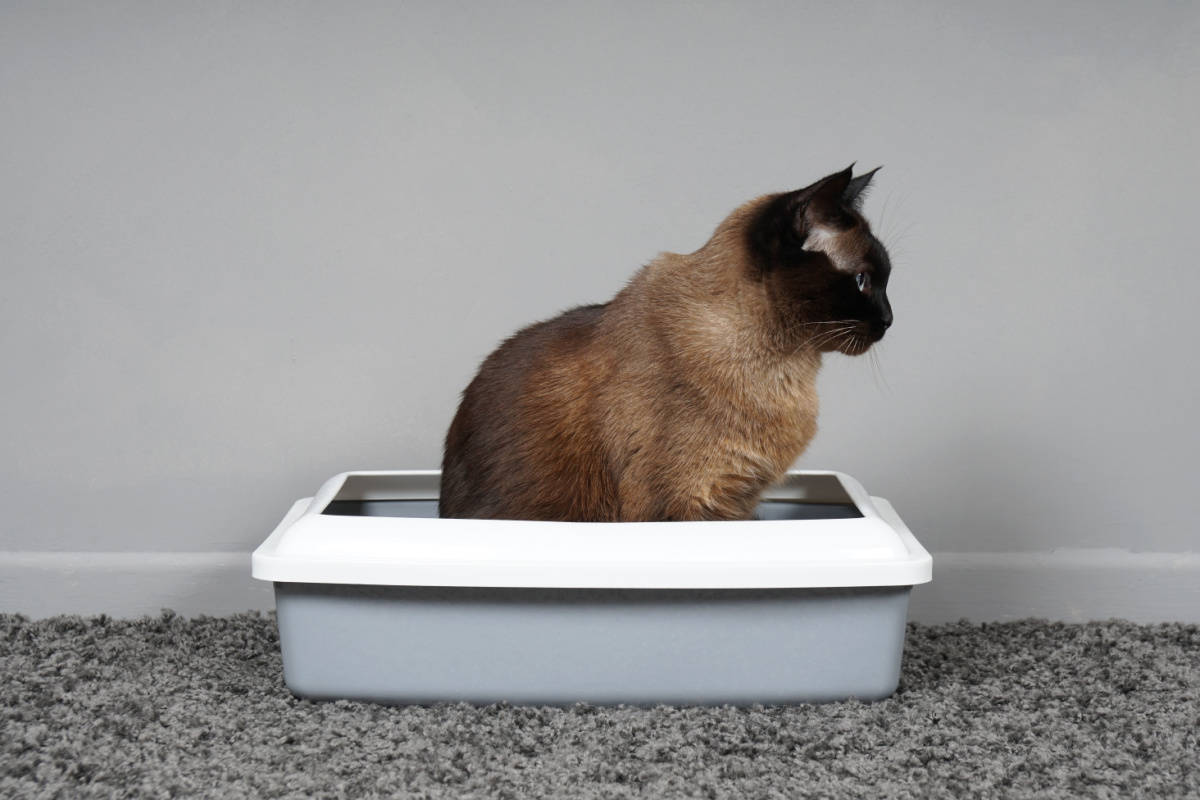
While cleaning doesn’t take long, it should be done frequently. Some cats prefer a clean box every time, so plan on scooping before leaving the house, upon returning, and before bed.
This quick task, taking just a few minutes, prevents bad odors and unwanted behavior.
With practice, daily cleaning can take as little as 5-10 minutes, especially with a consistent maintenance routine.
If you're looking to save time, consider an automatic litterbox, but make sure to research which one is right for you and your cat.
SIGN UP FOR THECATSITE'S EMAIL UPDATES >
How Much Time Does It Take To Feed A Cat?
First, your cat will need constant access to fresh water. The water dish should be kept clean and full at all times.
Some cats prefer to drink by putting a paw into the bowl and then licking the water off, which can be messy and require more frequent topping off water levels.
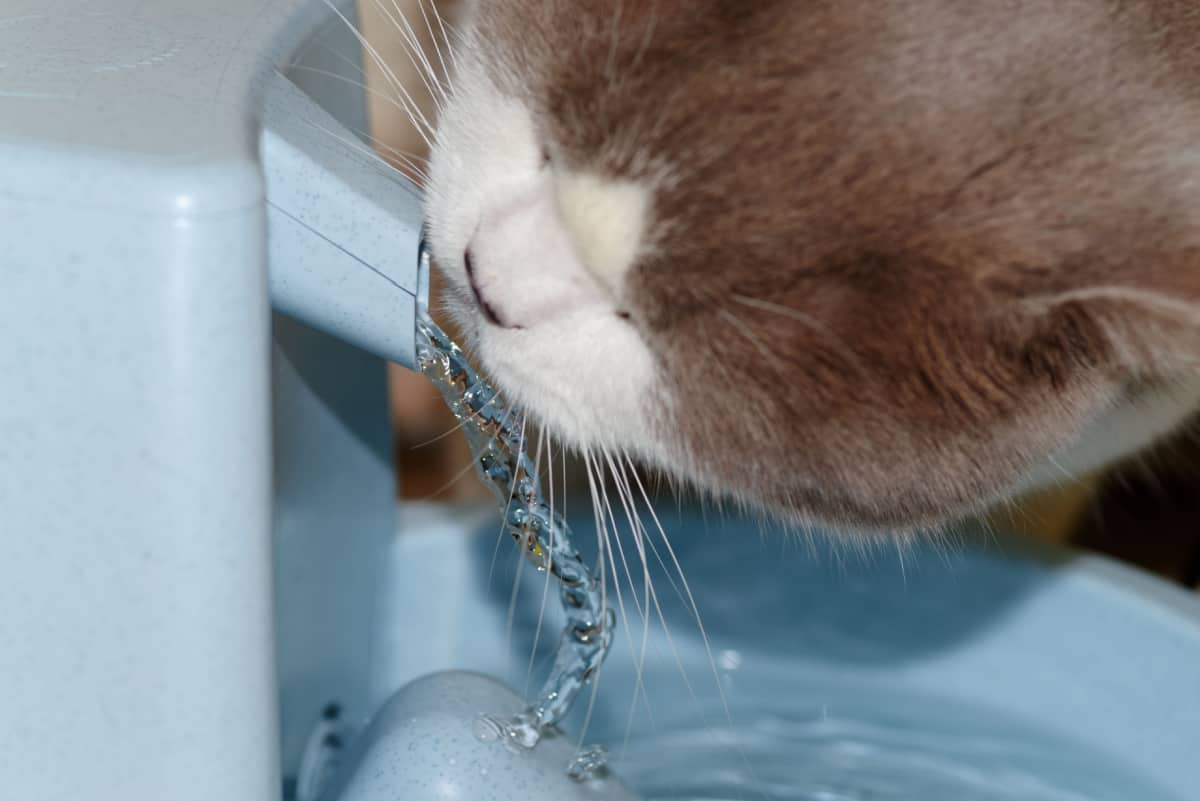
Read more about investing in a pet water fountain to make them happy.
The time you put into feeding your cat will vary according to the method you choose. You can find yourself spending anything between a minute or two to over an hour a day.
Feeding Dry Kibble
Many owners free-feed dry cat food. They leave Kitty’s kibble in the food dish once a day, topping it up as may be necessary.
If you opt for a quality ceramic or stainless steel dish, cleaning shouldn’t take long and may be as simple as putting the dish in the dishwasher once every few days.
Even when feeding kibble, you may choose to feed fixed portions at specific times, especially if the cat is on a special diet recommended by the vet.
This will be a bit more time-consuming, as you’ll have to measure portions and place them in the food dish at least twice a day.
Consider an automatic pet feeder if you’re feeding dry and wish to save precious minutes daily.
Feeding Wet Cat Food
If you choose to feed wet/canned or commercial raw, you may put more time into Kitty’s feeding routine.
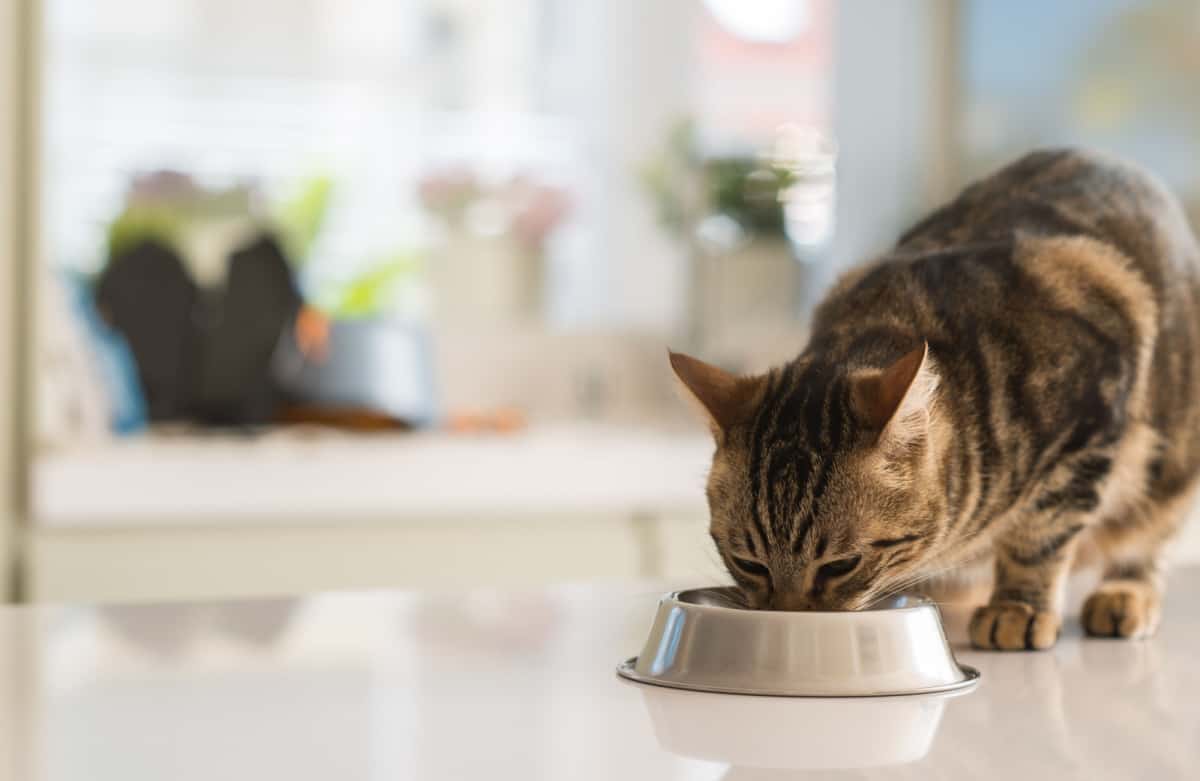
Wet food will spoil more quickly than dry. Commercial raw food poses even more of a risk as it's more likely to be contaminated by pathogens.
With any wet food, you’ll have to serve the food at least twice a day, then remove it and thoroughly clean the dishes after each use. Even then, feeding shouldn't take you more than 10-15 minutes.
Feeding Homemade Cat Food
Some owners choose to make their own cat food.
Whether they opt for raw or cooked homemade food, preparing the meals is more time-consuming than just opening a can or pouring dry kibble.
This is just one of the reasons why most cat owners choose commercial solutions. According to our survey, only 1-2% of owners prepare their cat’s food at home.
The time you’re going to invest in preparing homemade food will depend on the recipes you choose, the number of cats, and your level of expertise.
TheCatSite members who feed homemade cat food invest in quality tools, and many have food preparation down to an efficient process that can take as little as 1-2 hours a week.
How Much Time Does Vet Care For A Cat Take?
Kitty should see the veterinarian regularly.
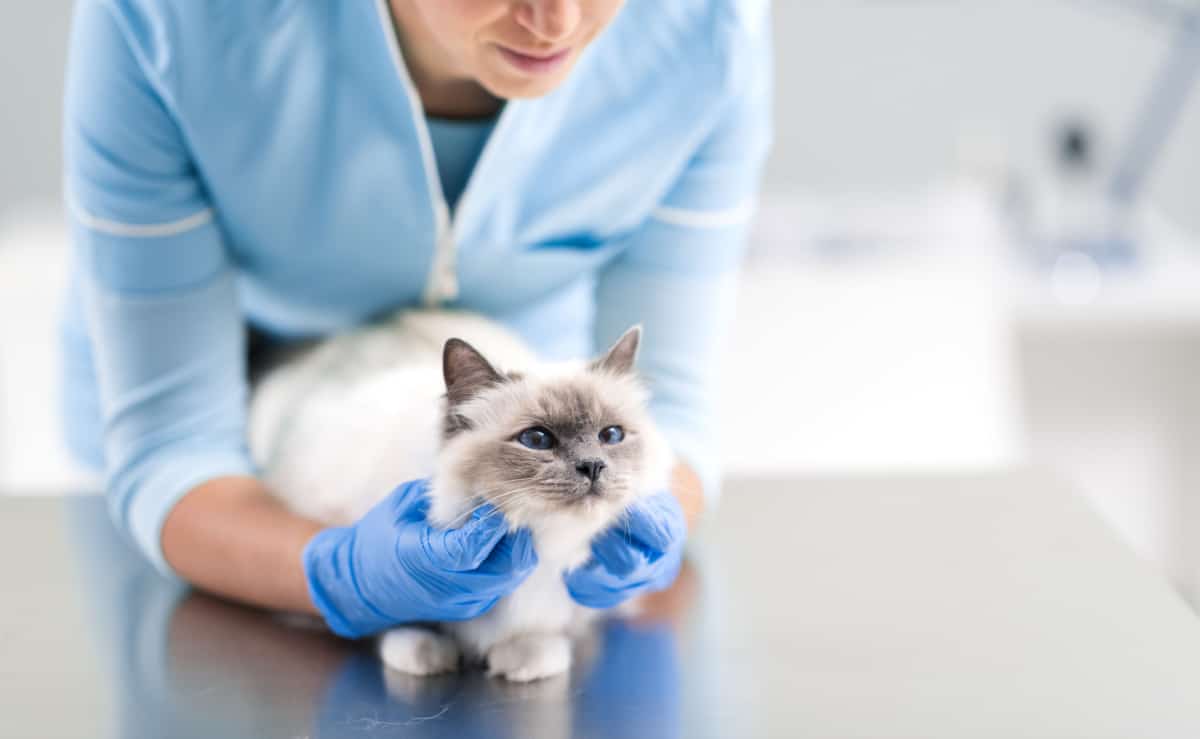
Just like with people, the doctor can notice a change from the last visit - weight loss or gain, a lump or bump, an ear infection, or tooth decay.
For a healthy adult cat, plan on seeing the vet at least once a year for a general check-up and possibly vaccination boosters.
Senior cats are likely to require more frequent veterinary care. Many veterinarians recommend checkups twice a year to catch age-related diseases early on.
Consult with your veterinarian about the best schedule for your cat.
Kittens also require more frequent vet visits - we'll cover the time needed to care for a kitten later in this article.
How Long Does It Take To Groom A Cat?
Most cats self-groom and usually don't require baths unless they get into something harmful.

However, longhaired breeds like Persians need regular combing to prevent matting and may require help with cleaning their behind.
While not mandatory, grooming has benefits.
Brushing your cat for about 10 minutes daily reduces hair in the home, helps prevent hairballs, and strengthens your bond with your cat.
Grooming also includes regular claw trimming. Read more about brushing Kitty's teeth.
Time Spent On Making Your Cat Happy
Your cat needs physical and mental stimulation to stay relaxed and happy. These can be achieved through playtime and overall physical activity.
Setting The Stage For Playtime And Exercise
There will be an initial investment of both time and resources in creating a stimulating environment for your cat, including the right kind of cat furniture and toys.
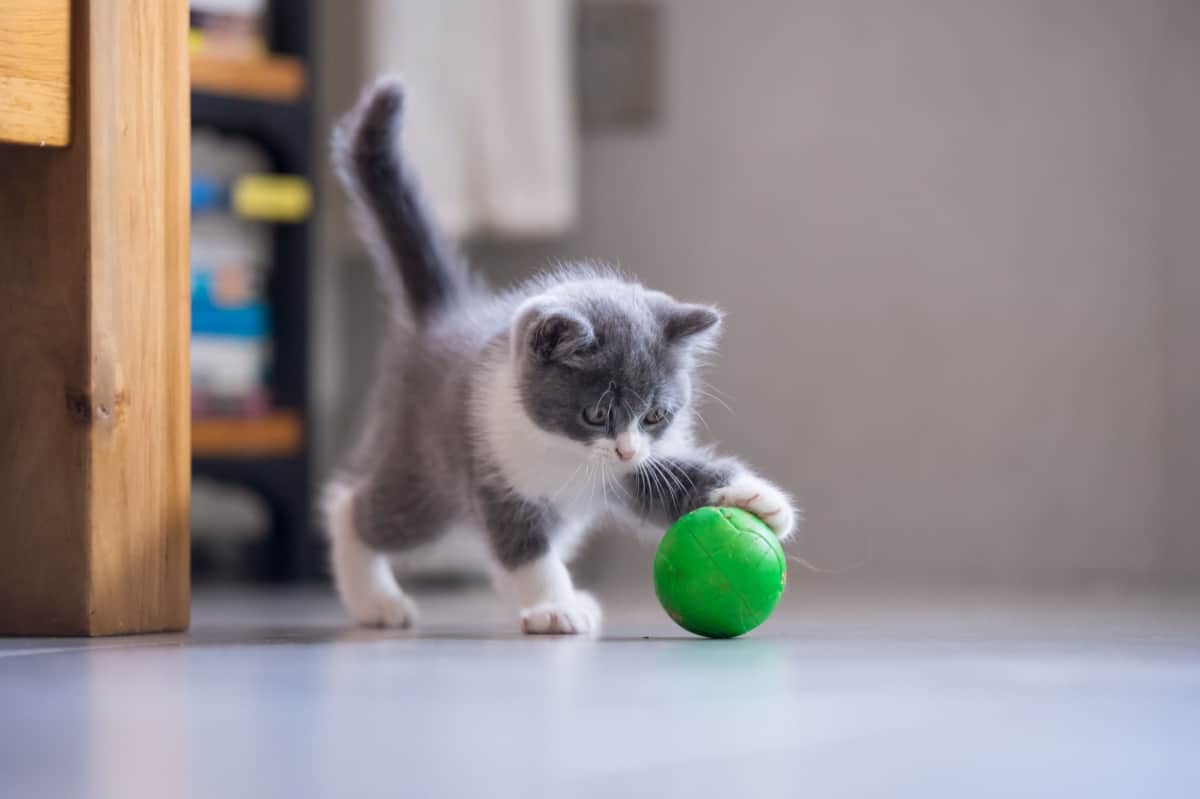
Playtime is crucial for kittens and young cats. It is good for older cats too, as it helps keep muscles limber and maintain balance. Even arthritic cats benefit from daily exercise.
Interactive Playtime
Interactive playtime is an important part of keeping your cat happy. It encourages your cat to get some exercise as well as strengthens the bond between you.
Interactive playtime can be used as a therapeutic tool too, to reduce stress in cats. It is more than waving a toy around while you watch television.
How much time should you spend playing with your cat? The more, the better! 10-15 minutes of interactive playtime a day is a good number to shoot for with most cats.
Spending Time With Your Cat
Contrary to stereotypes, cats enjoy human company. Some prefer sitting on laps, while others like being in the same room as their favorite people.
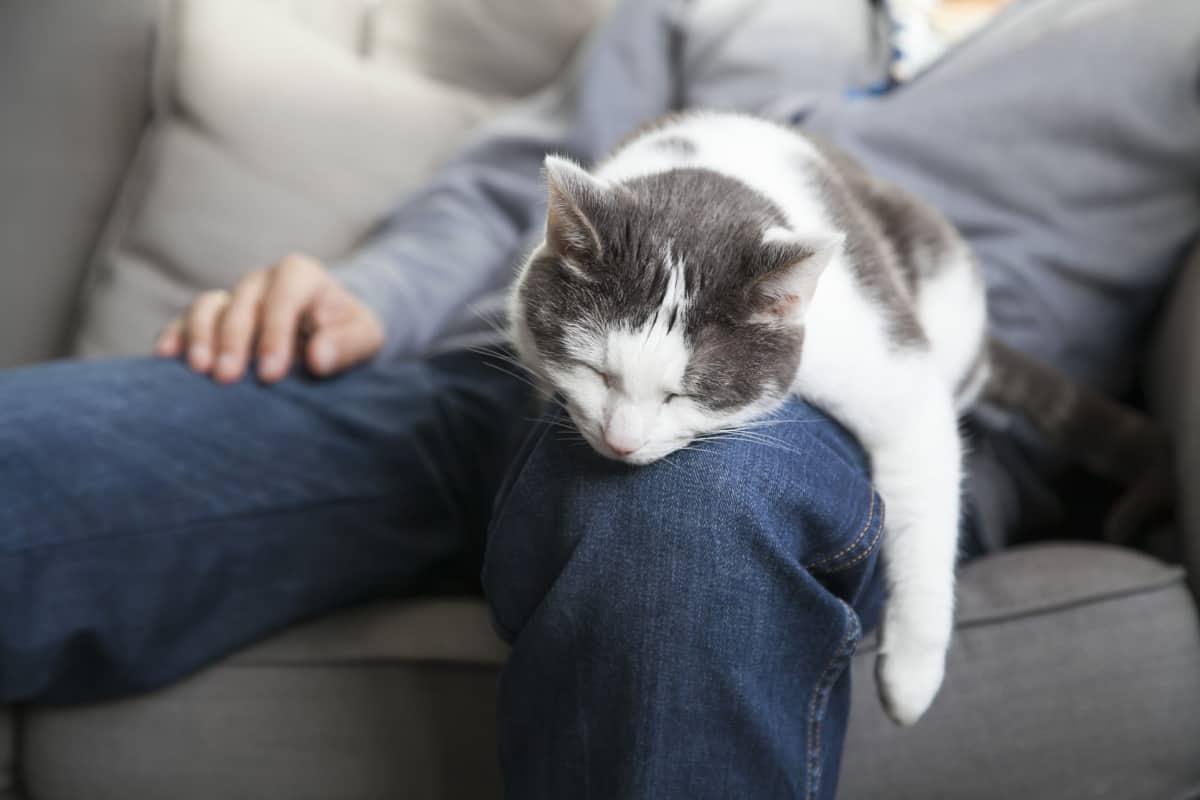
Ensure a friendly human spends several hours a day with your cat.
The time you need to spend with your cat varies depending on their temperament and environment.
Generally, avoid leaving your cat alone for extended periods. Even with food, water, and toys, they need human interaction.
How Much Time Does It Take To Care For A Kitten?
Kittens, while adorable, require more time and effort than adult cats.
They need multiple meals and litterbox visits daily, along with frequent scooping. Be prepared for occasional litterbox accidents.
Kittens visit the vet more often for vaccinations and parasite checks. You'll also need to allocate time for spaying/neutering and post-op care.
If you adopt a kitten from a shelter, watch for symptoms like runny noses, goopy eyes, or itchy ears, and be ready to treat fleas and worms.
Kittens Need More Playtime
Kittens brim with energy, often playing intensely before suddenly napping. This energy can last for months or even years as they mature.
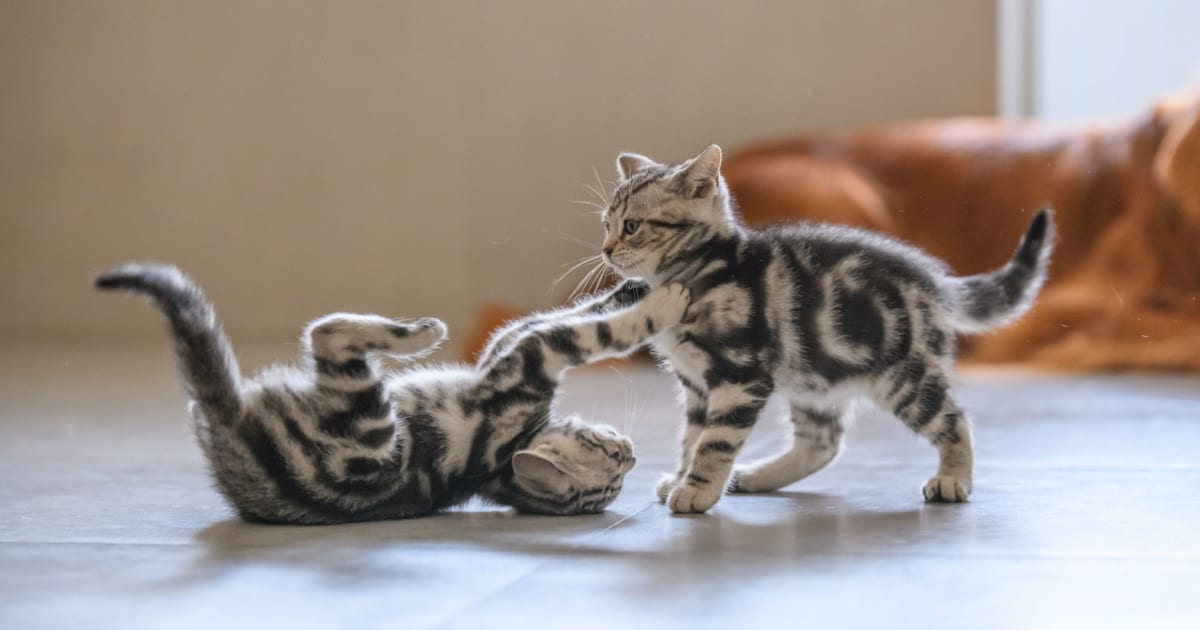
If you need a break, consider adopting two kittens so they can entertain each other.
Proper socialization requires much handling. Kittens must learn boundaries, such as not biting or jumping unexpectedly. Spending time together fosters a lifelong bond.
If you can't dedicate at least a few hours daily to play and interaction, you might reconsider adopting a kitten.
The Special Case Of Newborns
Newborn kittens, like human babies, need constant care. Typically, the mother cat provides this care, but if you're caring for orphaned kittens, you'll have to step in.
Hand-rearing kittens are challenging and time-consuming. They need feeding every few hours around the clock, and you must keep records of their intake and weight.
If they get sick, their condition can quickly become critical, so be ready for vet visits. If you've never raised orphaned kittens, consider seeking help from an experienced rescuer.
When Cat Care Becomes More Time-Consuming
So, you adopted a healthy adult cat and think you know how much time you need to care for him or her? Keep in mind that things can change down the road.
You may be required to put in a whole lot more time in order to care for your cat.
Dealing With Illness
Cats can get sick, requiring extra care. Short-term illnesses may demand time and money for a few weeks or months. Chronic conditions require long-term changes.
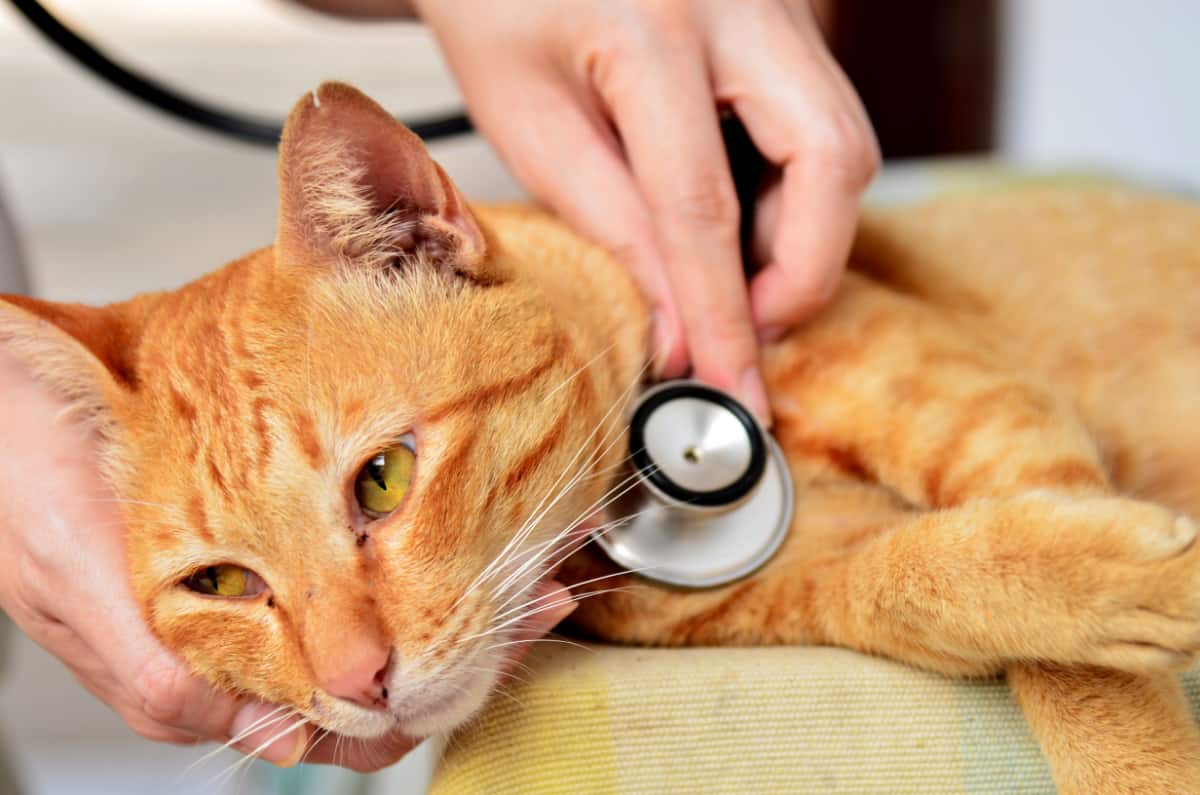
For example, feline arthritis may necessitate lowering the litterbox entrance, placing a stool by the couch, or slowing exercise.
After these adjustments, daily medication might only take a few minutes.
Conditions like feline diabetes may require more time, including daily insulin shots, special diets, more frequent meals, and altered litterbox maintenance.
Dealing With Behavior Problems
When a cat's behavior disrupts your life, it can be a problem. Whether it's natural behavior, illness, or stress, you'll need to invest time in identifying and addressing the cause.
For instance, if your cat stops using the litterbox, you'll have to investigate the cause, which might involve a vet visit, treating medical issues, or changing the litterbox or litter.
Cleaning up until you find a solution can be time-consuming and unpleasant.
Night Time Issues
It used to be said that cats are nocturnal animals. Scientists now believe that our felines are actually crepuscular animals.
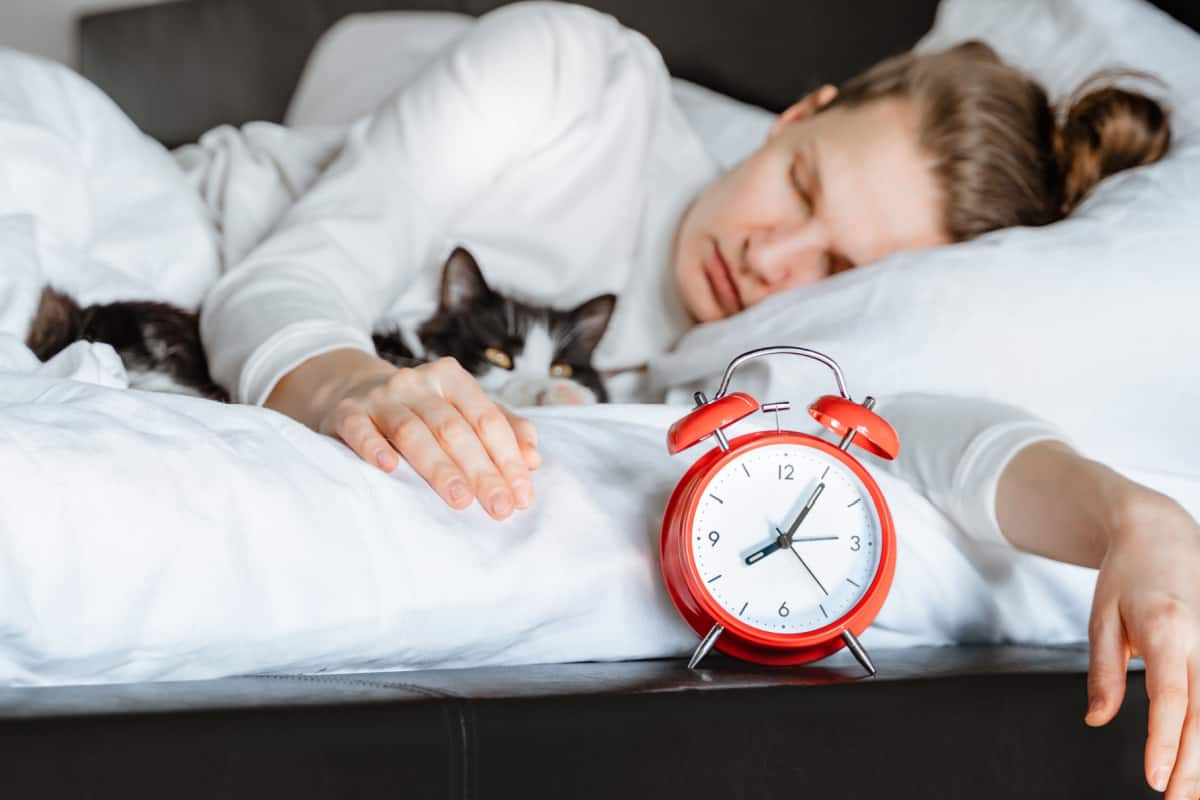
In other words, their internal clock makes them most active during dusk and dawn. For a cat that lives indoors, that could mean as early as 4 AM and as late as past midnight.
Studies show that cats can adjust to their owner's schedules.
For some cats, however, this can be more of a challenge, and they may wake up owners for nighttime feeding and general attention.
Be prepared to deal with nighttime behaviors and help Kitty adjust to her own schedule.
So, How Much Time Does It Actually Take To Care For A Cat?
Caring for a cat requires time. Daily routine tasks like feeding and litterbox maintenance take 10 to 20 minutes, while interactive playtime adds another 15 minutes.
Brushing your cat's coat, especially for long-haired breeds, takes an additional 10 minutes.
Veterinary care for a healthy cat adds a few hours annually, but illness or injury can require dozens more.
Besides these tasks, you or a family member should spend several hours with your cat daily.
While you could spend minimal time with your cat, remember that you adopted them for companionship.
Investing time in your lifelong furry friend, who may be with you for over twenty years, is well worth the joy they bring
SIGN UP FOR THECATSITE'S EMAIL UPDATES >
Are you an experienced cat owner? Let us know more about how long it takes you to care for your cat by leaving a comment below.
New to cats and have more questions? We can try and help out in the cat forums, so please start a discussion in one of the cat care forums.
Enjoyed this article? Share it with friends on Facebook and Twitter using the image here:

Read more on:
Hand Rearing Kittens: What You Need To Know To Save A Newborn's Life
I Found Abandoned Kittens - What Should I Do?
Note: We may get commissions for purchases made through links on this page.




15 comments on “How Much Time Does It Take To Care For A Cat? [Answered]”